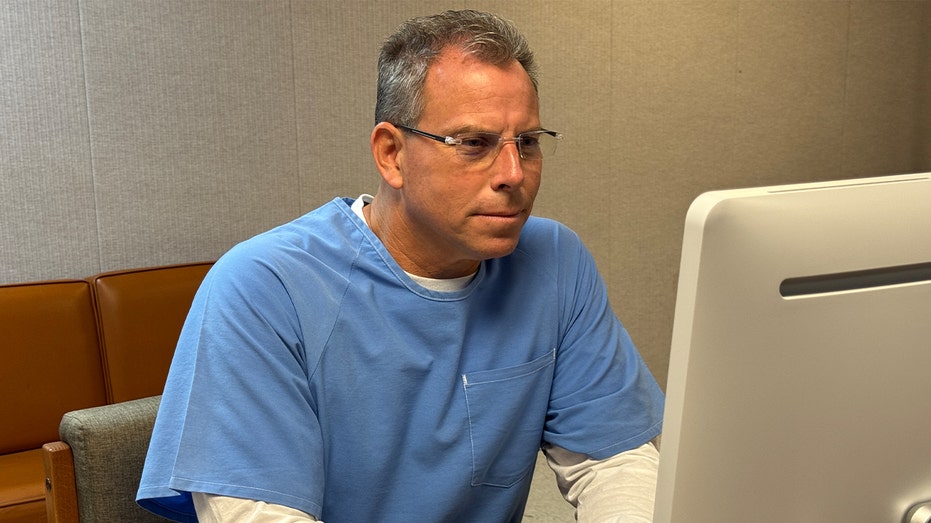NEWYou can now listen to Fox News articles!
SAN DIEGO — Erik Menendez, one of the two brothers convicted in the 1989 shotgun slayings of their parents in Beverly Hills, was denied parole by a California review board on Thursday in his first appearance before the board. The board will now consider whether his brother, Lyle, should be set free in his own parole hearing on Friday.
Lyle is set to appear before the parole board via video conference from Richard J. Donovan Correctional Facility in San Diego at 8:30 a.m. His case will likely be heard by different commissioners than the commissioners who heard his brother’s case.
The California Board of Parole Hearings’ denial of parole for Erik marks a significant development in the decades-long case that drew international attention, with the brothers’ televised trial becoming one of the most infamous of the 1990s.
Erik, now 54, has spent more than 30 years behind bars.
MENENDEZ BROTHERS’ JUNE HEARING CONVERTED FROM CLEMENCY TO PAROLE AS DECISION LOOMS FOR GOV. NEWSOM
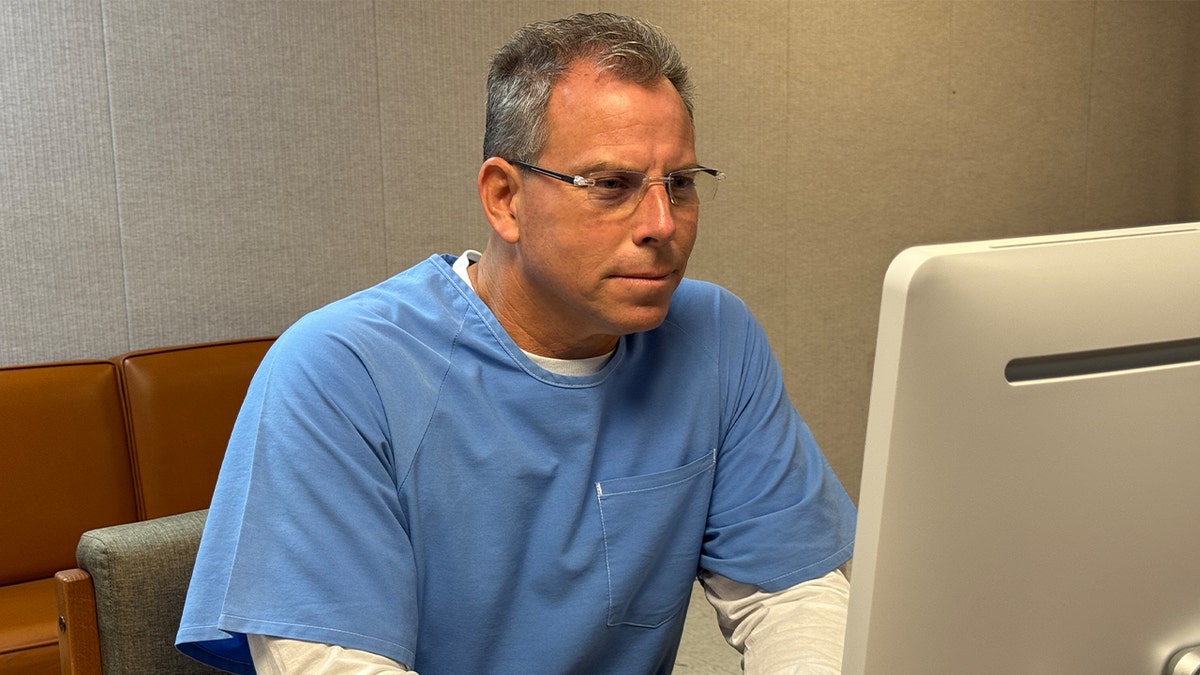
In a hearing that lasted nearly 10 hours in San Diego, the parole board denied recommending Erik Menendez’s release at 5:50 p.m. local time. Erik listened intently to the board’s decision, nodding, but clearly visibly hurt by the decision.
Commissioner Robert Barton emphasized the weight of Erik’s actions and subsequent prison conduct.
“I believe in redemption, or I wouldn’t be doing this job … but based on the legal standards, we find that you continue to pose an unreasonable risk to public safety,” Barton said.
He said that while the family’s forgiveness was “amazing,” forgiveness and parole eligibility were separate matters.
“Two things can be true. They can love and forgive you and you can still be found unsuitable for parole,” he said.
Barton repeatedly returned to the brutality of the crime and Erik’s failure to separate his parents in the moment.
“The manner and the motive for the killings do have some weight in aggravation. … The killing of your mother especially showed a lack of empathy and reason,” Barton said.
“I can’t put myself in your place,” he added. “I don’t know that I’ve ever had rage to that level, ever. But that is still concerning, especially since it seems she was also a victim herself of the domestic violence.”
Barton acknowledged Erik’s testimony of fear but said the board did not believe he was in “imminent fear” the night of the killings. He also noted that Erik’s illegal use of a cellphone was “selfish,” and a sign that the brother believed that the “ends justify the means,” which, he said, highlights his “dangerousness.”
Barton said the seriousness of the crime is “not a primary reason for this denial. It’s still your behavior in prison.”
“One can pose a risk to public safety in many ways, with several types of criminal behavior, including the ones you were guilty of in prison,” he said.
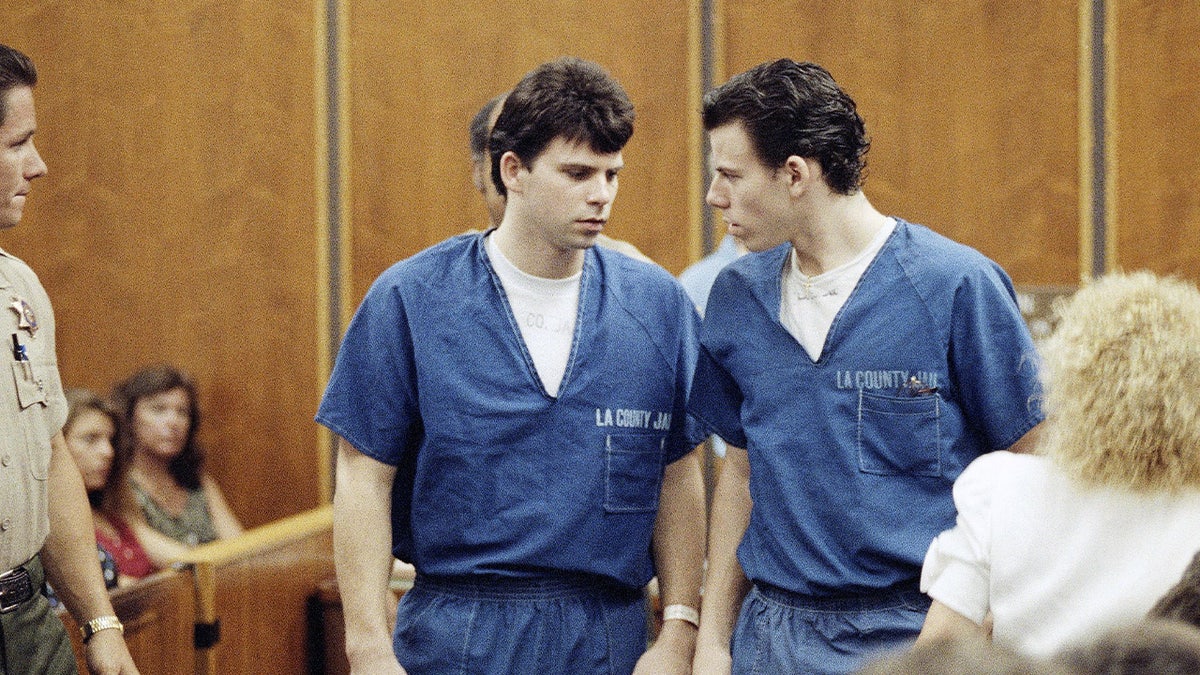
Throughout the hearing, Erik described the terror and anger that shaped his actions as an 18-year-old, telling the panel he knew his father would rape him that night.
“Dad was going to come to my room and rape me that night. That was going to happen. One way or another. If he was alive, that was going to happen,” he said.
He admitted he did not differentiate between his parents in the moment.
“I saw my mother and my father as one person after I learned that she knew, so when I was running into the den, I was in a state of terror, of panic, of rage. I didn’t parse out in my mind my mother or my father.”
I wish to God I did not do that.
— Erik Menendez to parole board
MENENDEZ BROTHERS CONFRONT PAROLE BOARD BEFORE GOV NEWSOM DECIDES WHETHER TO SET KILLERS FREE
In his closing remarks, Erik called his actions “a forever crime.”
“I cannot express sorrow and remorse enough. Doing it for the rest of my life will not be enough,” Erik said.
“I just want my family to understand that I am so unimaginably sorry for what I have put them through from Aug. 20, 1989, until this day, and this hearing. I know that they have been here for me, and they’re here for me today, but I want them to know that this should be about them. It’s about them, and if I ever get the chance at freedom, I want the healing to be about them.
“Don’t think it’s the healing of me, it’s the healing of the family. This is a family tragedy.”
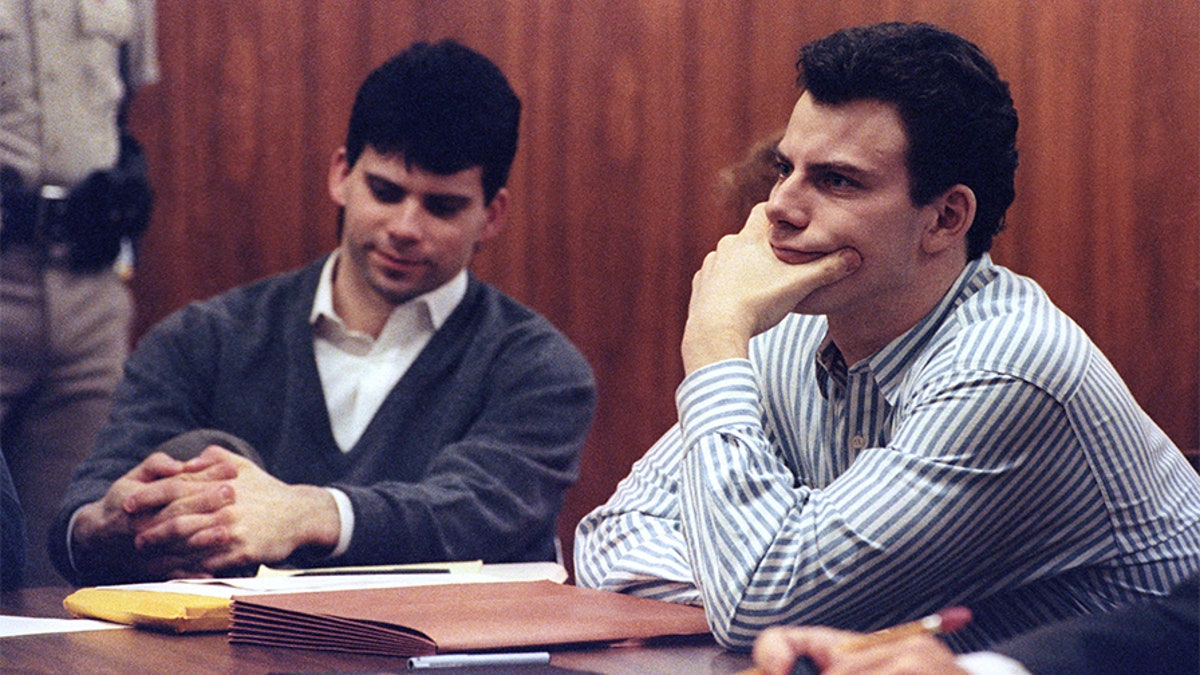
In his hearing, the brothers’ family members testified in support of his release. Erik’s aunt, Teresita Menendez-Baralt, who is battling Stage 4 cancer, told the board she has “fully” forgiven him.
“I want to make clear that although I love my brother, I have fully forgiven Erik … more than anything I hope I live long enough to welcome him into my home. To sit at the same table. To wrap my arms around him. That would bring me immeasurable peace and joy.”
Other relatives echoed forgiveness, pledging to provide him with a strong support system if he were released.
Despite that support, prosecutors insisted he remained dangerous, with Los Angeles Deputy District Attorney Habib Balian saying, “He is not reformed. He is still an unreasonable risk to society. He has no insight into his crimes.”
In a statement, the Menendez family expressed disappointment with the decision.
“While we respect the decision, today’s outcome was, of course, disappointing and not what we hoped for. But our belief in Erik remains unwavering, and we know he will take the Board’s recommendation in stride. His remorse, growth, and the positive impact he’s had on others speak for themselves. We will continue to stand by him and hold to the hope he is able to return home soon,” the Menendez family said.
“Tomorrow, we turn our attention to Lyle’s hearing. And while it is undoubtedly difficult, we remain cautiously optimistic and hopeful that the commissioner will see in Lyle what so many others have: a man who has taken responsibility, transformed his life, and is ready to come home.”
WATCH: Erik Menendez’s bid for parole denied by California officials
In a statement, Los Angeles County District Attorney Nathan Hochman said the board “rightly decided against” granting parole to Erik.
“I commend the Board for its thoughtful decision and for weighing all of the evidence and relevant parole factors. This ruling does justice for Jose and Kitty Menendez, the victims of the brutal murders carried out by their sons on Aug. 20, 1989. The prior administration’s motion for resentencing failed to examine or consider whether the Menendez brothers have exhibited full insight into, and taken complete responsibility for, their crimes,” he said in a statement Thursday.
“For more than three decades, both Erik and Lyle Menendez have advanced a false claim of self-defense, alleging they feared their parents were going to kill them, to justify the brutal murders of their parents — including shotgun blasts to their father’s back, a point-blank shot to their mother’s face, and shots to their kneecaps staged to mimic a Mafia killing. The record shows they suborned perjury, including soliciting others to make false claims that their father violently raped Lyle’s girlfriend and that their mother poisoned the family.
“The Board correctly determined that Erik Menendez’s actions speak louder than words, and that his conduct in prison and current mentality demonstrates that he still poses an unreasonable risk of danger to the community. Importantly, the Board did not bow to public spectacle or pressure, a restraint that upholds the dignity and integrity of the justice system.”
Hochman said that the decision reflects a “careful, evidence-based assessment of the facts and parole factors.”
“While this parole hearing has been denied, he will have subsequent parole hearings, and our office will continue to attend and make the case on behalf of justice and public safety. The prosecutors who have carried out this work — Assistant Head Deputy District Attorney Habib Balian and Deputy District Attorneys Ethan Milius and Seth Carmack — exemplify the highest standards of professionalism and commitment to justice, and their efforts ensured that every fact was brought forward, and every argument was made with clarity and force.”
With the California Board of Parole Hearings not recommending Erik Menendez for parole, he will remain incarcerated. He is eligible for parole again in three years.
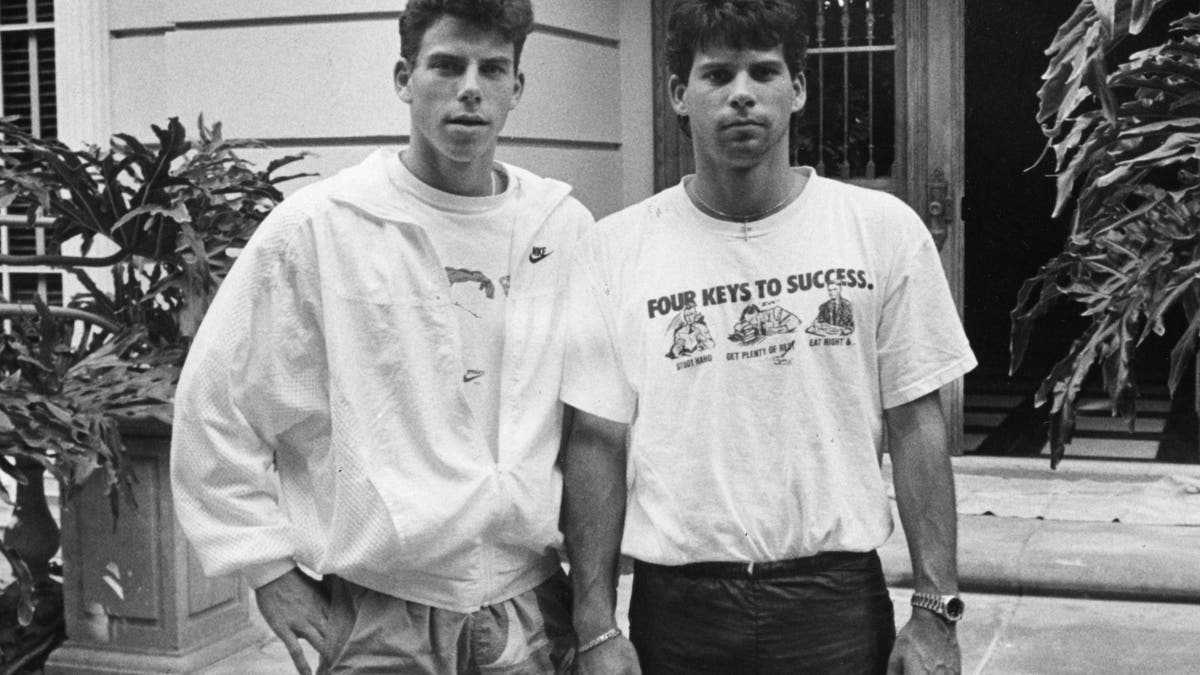
The decision came on the heels of a bombshell resentencing hearing in Los Angeles Superior Court in May, when Judge Michael Jesic reduced their life-without-parole sentences to 50-to-life, making them eligible for parole consideration.
In a news conference after the ruling May 14, Gov. Gavin Newsom explained the multi-layered process of considering the Menendez brothers’ eligibility for release.
The governor explained that, before any decision was finalized, a team of forensic psychologists conducted individualized risk assessments on each brother.
MENENDEZ BROTHERS ASK CALIFORNIA GOV. NEWSOM FOR CLEMENCY
“We thought that would be prudent to do,” Newsom said, adding those assessments have been “debated” not only by Hochman and the victims’ family, but also by the judge “both publicly in another conversation, some of it behind closed doors.”
The topic of the brothers’ comprehensive risk assessments has been a sticking point for Hochman.
The brothers were marked as “moderate risk,” an increase from their previous “low risk” assessment. The moderate risk increase came after each report found that Erik and Lyle, in recent months, had been cited for breaking prison rules for contraband violations, specifically the possession of cellphones.
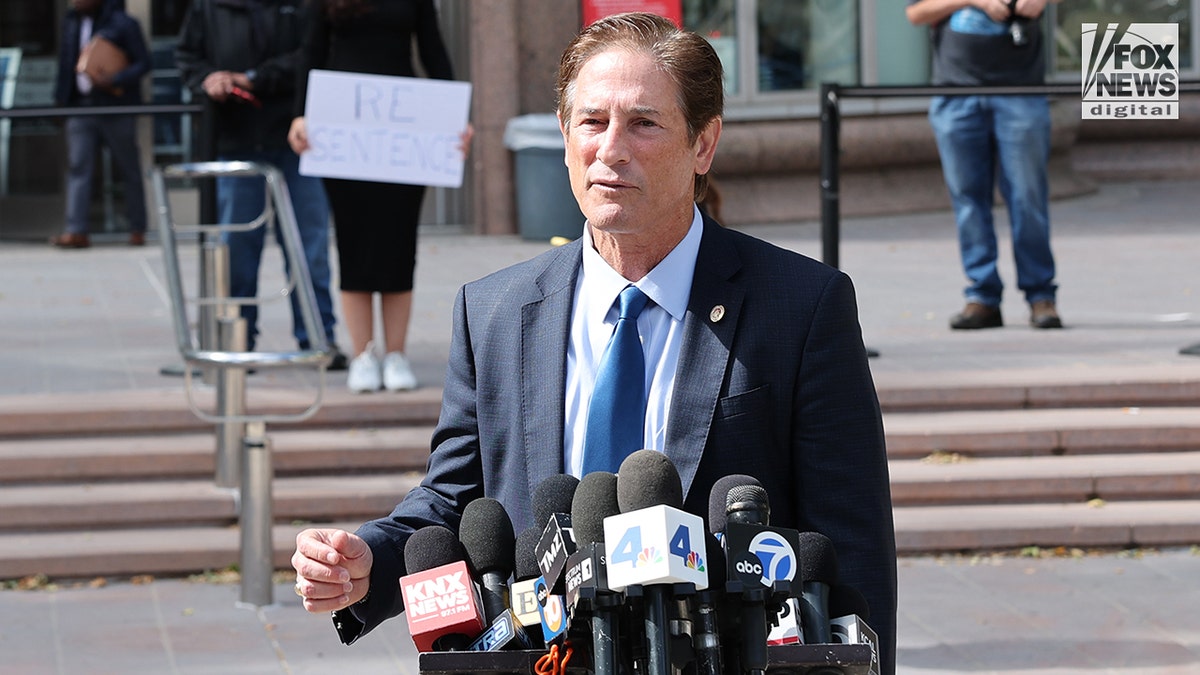
Hochman, referring to the contraband phone, first shared the findings on Lyle Menendez, whose “actions perpetrated deceit.”
He added that Lyle had “downplayed his rule-breaking” and that his report showed his “entitlement and willingness to meet his own needs.”
MENENDEZ BROTHERS ASK CALIFORNIA GOV. NEWSOM FOR CLEMENCY
Along with the illicit cellphone usage, Erik was accused of possessing and dealing drugs and helping other inmates with tax fraud. Hochman, who ran on a tough-on-crime platform, has been vocal about the brothers’ lack of rehabilitation.
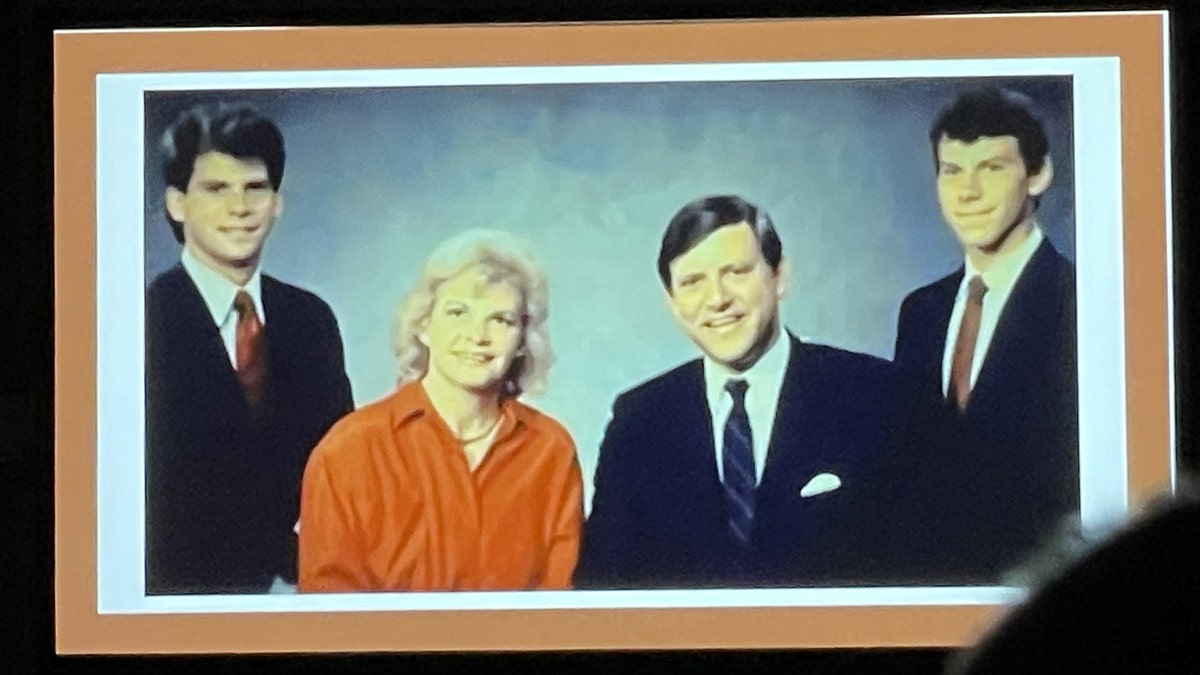
In August 1989, Beverly Hills socialites José and Kitty Menendez were shot to death in their home.
Hochman previously called the murders “mafia-like hits,” remarking on the violent nature of the repeated rounds that were fired at the parents.
The boys, then 18 and 21, were convicted in 1996.
CLICK HERE TO GET THE FOX NEWS APP
The defense’s assertion was that the brothers had been driven to violence by years of physical and sexual abuse at their father’s hands.
Despite the first trial resulting in a hung juror, leading to their eventual conviction in 1996, the public has remained divided on whether the brothers acted in greed or in self-defense.
U.S. News Today on Fox News
Read the full article .

